Reviews
Lauren Greenfield
USA, 2012
Credits
Review by Victoria Large
Posted on 25 June 2012
Source 35mm print
Categories The 2012 Independent Film Festival Boston
Lauren Greenfield’s buzzed-over documentary The Queen of Versailles, which picked up a Directing Award at this year’s Sundance Film Festival and served as IFFB’s closing night feature, was supposed to be a documentary about a family of billionaires building the largest house in the United States, but fate intervened. Instead the family, headed by David Siegel, who made his billions in the timeshare business, falls on comparatively lean times following the US financial crisis of 2008. Construction is halted on the house, which the family has dubbed “Versailles” because it was largely inspired by the infamous French palace. (If the Siegels sense any irony in their choice of names for the house, they don’t mention it.) As the film progresses, the Siegels’ outrageously ostentatious mansion, incomplete and in jeopardy of foreclosure, becomes a structure packed with symbolic import, so much so that in a fictional story, it might seem downright contrived. That the film isn’t a fiction is one of its most striking features, actually, so potent is Greenfield’s imagery - including swimming pools gone brackish and expensive carpets dotted with pet droppings - and so distinctive are her characters.
The “queen” of the film’s title is David Siegel’s wife Jackie, a former Mrs. Florida who at first brush looks like a stereotypical trophy wife: she has long blonde hair, a generous bust, blinged-out accessories and an affinity for small, yappy dogs. But her backstory might not be what viewers expect. She holds a degree in engineering, and left her career in that field after talking to a co-worker who was actively counting down the days until his retirement. She became a model instead, and eventually found her way to David Siegel.
Greenfield was clearly given extraordinarily intimate access to the Siegels’ lives, and she allows us to see the family, and Jackie in particular, from all sides. That means that yes, we do see Jackie during some humorously strange moments, particularly after the Siegels’ fortunes have begun to turn. (In one memorable exchange, Jackie asks a Hertz rental car staffer for the name of her driver, not realizing that the car doesn’t come with one.) But as a director Greenfield is more interested in uncovering the humanity of her subjects than laughing at their foibles. We see Jackie’s compassionate side, such as when she seeks to help a high school friend in need. There are also some moments of startlingly raw vulnerability. For example, Jackie repeatedly references David’s threat to trade his wife in for “two twenty-year-olds” once she has turned forty. She mentions this comment to her husband in an aching scene that finds David recoiling from Jackie after a series of Botox injections have temporarily inflamed her face. In scenes like this, it’s difficult not to feel for Jackie in her insecurity.
Still, it’s true that viewers will likely have mixed emotions about the family members. When Greenfield visits a telemarketing office for Siegel’s company that was completely emptied out by layoffs shortly before Thanksgiving, it certainly allows one to maintain some perspective when it comes to the Siegel family’s own struggles. And while Greenfield includes some insightful interviews with patriarch David Siegel, allowing us to consider the origins of his dogged pursuit of the Horatio Alger-style American dream, it’s tough to shake his claim, authentic or not, that he used his clout to illegally sway the results of the US presidential election in 2000. Greenfield demystifies the Siegels’ wealth and makes them three-dimensional without overlooking their less palatable qualities, and that’s ultimately to her film’s benefit.
Critics have suggested that the Siegels’ story reflects that of many Americans in the wake of the financial crisis, just played out on a larger scale, but that read might actually be somewhat reductive for a film with as many lingering and troubling details as The Queen of Versailles. What the film does especially well is capture the complex mood of the United States in the wake of the financial crisis. The US has often been a country that equates the “pursuit of happiness” with the pursuit of wealth, yet in this film, we hear a driver tell us that people don’t want to be seen in limos anymore. Meanwhile, the Siegels are at once questioning and clinging to there own excesses. The nation’s deep ambivalence toward wealth lurks just beneath the surface of this film, and the indeterminate fate of Versailles - neither reclaimed nor forsaken at the story’s conclusion - seems to speak to the slow waning of a particular version of the American Dream.
More The 2012 Independent Film Festival Boston
-
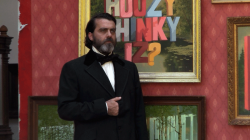
Beauty is Embarrassing
2012 -

Gregory Crewdson: Brief Encounters
2012 -
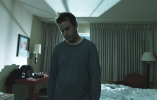
Sleepwalk with Me
2012 -

Liberal Arts
2010 -

Burn
2012 -
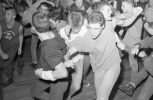
All-Ages: The Boston Hardcore Film
2012 -
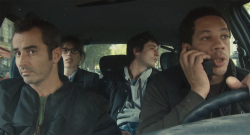
Polisse
2011 -

Sun Don’t Shine
2012 -

Headhunters
2011 -

Cerro Rico, Tierra Rica
2011 -
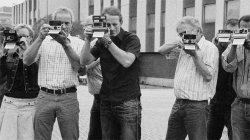
Time Zero: The Last Year of Polaroid Film
2011 -

Jason Becker: Not Dead Yet
2012 -

Detropia
2012 -
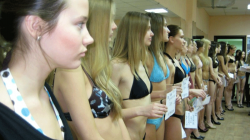
Girl Model
2011 -
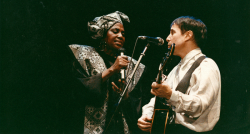
Under African Skies
2012 -

The Central Park Effect
2012 -
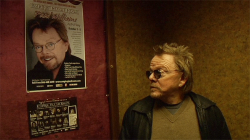
Paul Williams: Still Alive
2011 -

Trishna
2012 -

The Queen of Versailles
2012
We don’t do comments anymore, but you may contact us here or find us on Twitter or Facebook.



